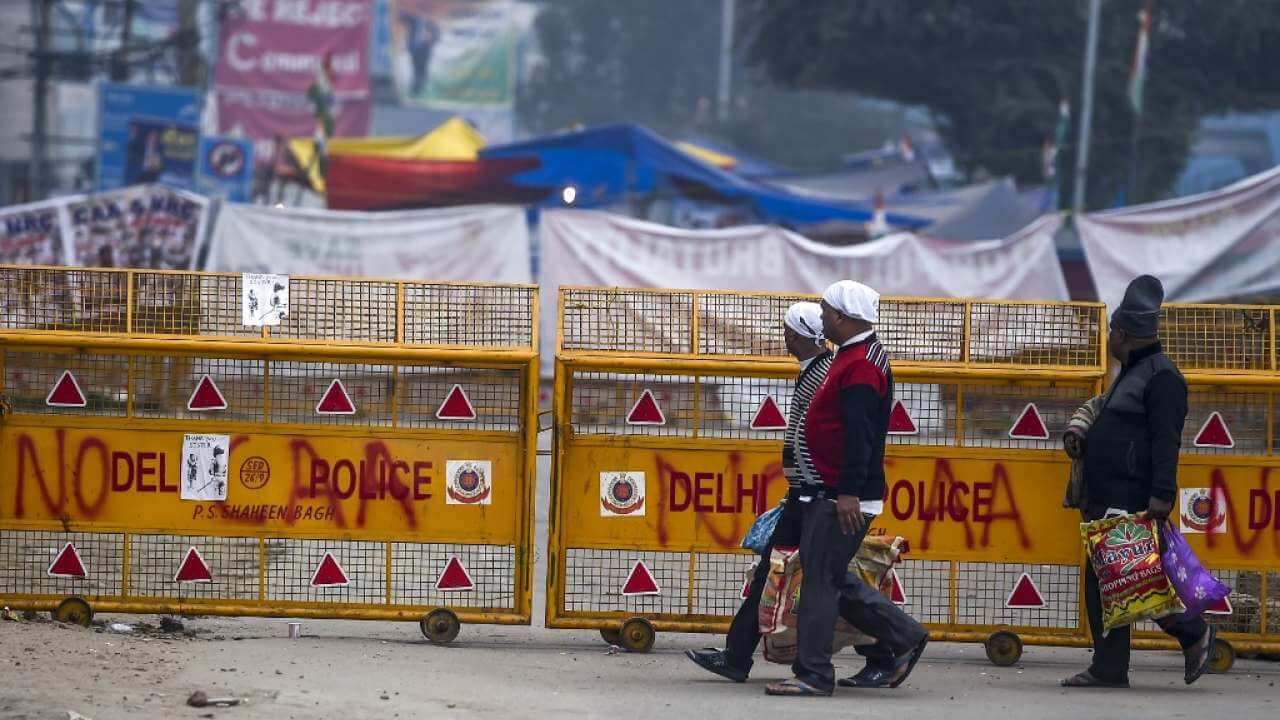The Supreme Court has adjourned a petition seeking the clearance of the road blockade in Shaheen Bagh until the 23rd of March. While hearing the petition, Justice Kishan Kaul and KM Joseph said that the incidents occurring in Delhi since Monday were ‘unfortunate’.
The bench said that since the “environment is not conducive”, it will not examine the interlocutors’ report on Shaheen Bagh. The apex court had earlier appointed senior advocates Sanjay Hegde and Sadhna Ramachandran as interlocutors, who were to convince the Shaheen Bagh protestors to relocate their agitation. The interlocutors submitted their report in a sealed cover yesterday.
Advocate and activist Amit Sahni had also filed a plea in the Supreme Court against the Shaheen Bagh protestors, claiming that it was disrupting the daily life of citizens in the area. The plea contended that “no one can be permitted to occupy a public road for any reason whatsoever and that too for an indefinite period, [while making] others suffer for this.” Nand Kishore Garg, member of the Bhartiya Janata Party, had also filed a plea seeking directions to authorities to remove protestors from the area.
However, in his affidavit to the Supreme Court, former Chief Information Commissioner Wajahat Habibullah said that the protests at the Shaheen Bagh were peaceful and that the inconvenience caused to the commuters was because of the ‘unnecessary’ barricades “placed by the Delhi Police far away from the site.
More importantly, the bench criticized the police’s role in handling the protests and violence in Delhi. Senior Counsel Colin Gonsalves told the Supreme Court that the Delhi High Court would be hearing a similar matter today. The Supreme Court claimed that matter then stood disposed as the Delhi High Court was already seized of the issue. Justice Kaul stated that the bench was not intending to extend the scope of the case that specifically pertains to the blocking of the road.
The Supreme Court made some crucial oral observations on the violence in the national capital. Justice Joseph criticized the Delhi Police’s “lack of independence and professionalism” in dealing with the unrest, and said that the lack of proactive police action had become a nation-wide problem. Both judges called for a rigorous implementation of the Prakash Singh ruling, in which the apex court had proposed insulating the police force from the pulls and pressures of political parties.
The Delhi High Court heard a plea seeking FIRs and a judicial inquiry against BJP leaders Anurag Thakur, Parvesh Sahib Singh, Kapil Mishra, and others for allegedly making provocative statements on anti-CAA protestors. The matter was mentioned for urgent hearing before Justice Muralidhar’s bench by senior advocate Colin Gonsalves, who was appearing for civil rights activist Harsh Mander. Tushar Mehta, the solicitor general, informed the bench that the plea seeking the arrest of BJP leaders for making hate speeches is ‘not urgent enough so as to call the matter from the Chief Justice’s court and hear it today’. The solicitor general said that he was not aware of the facts and continued to press for more time to make submissions. He also added that he does not watch “TV or news” before making his submissions, to which Justice Muralidhar replied that “unfortunately that [was] not the privilege that judges [had]”.
The bench asked the Solicitor General to watch and examine the video clips in open court and also asked him to advise Police Commissioner Amulya Patnaik on lodging of FIRs against BJP leaders and others for making hate speeches.
Hours after he pulled up the Delhi Police for its inaction, Justice Muralidhar was transferred to the Punjab and Haryana High Court. However, Union Law Minister Ravi Shankar Prasad said a “well-settled process” was followed and pointed out that the judge's consent was taken. He added that the notification was issued following approval of a February 12 recommendation by the Supreme Court Collegium.
Image Source: DNA India
“Amazed at the State of Affairs of the Delhi Police”: Apex Court
February 27, 2020

